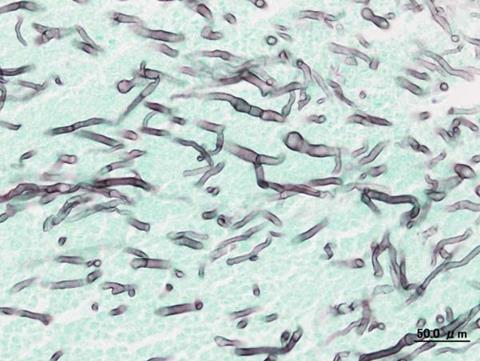As society learns to live with COVID-19, research on the disease and its complications remains important. Thus, an Osaka Metropolitan University team has pored through data to understand the incidence in Japan of COVID-19-associated pulmonary aspergillosis (CAPA), a severe invasive fungal infection of the lungs.

Few studies have been conducted on CAPA in Japan, but reports from overseas put the incidence between 3.8% and 35%.
READ MORE: Researchers discover key gene regulating virulence of fungus that causes severe lung infections
READ MORE: New estimate doubles likely deaths from fungal disease globally
Using Japanese administrative claims data, Graduate School of Medicine Lecturer Waki Imoto, graduate student Mr. Yasutaka Ihara, Professor Ayumi Shintani, and Professor Hiroshi Kakeya were among the team analyzing CAPA, especially in patients with severe or critical COVID-19. The team studied over 150,000 COVID-19 cases from the full calendar years of 2020 and 2021, and approximately 33,000 patients were in the severe or critical category.
Higher risk
Among these 33,000, CAPA occurred in 0.4% to 2.7% of patients, with men, older adults, the existence of respiratory diseases, and the use of dialysis treatments or blood transfusions as being at higher risk of getting the infection. Statistical analysis also showed the mortality rate was twice as high for patients with CAPA.
“The CAPA incidence rates obtained in this study were lower than those reported overseas. This result may be related to the fact that few facilities in Japan treated COVID-19 patients with CAPA in mind,” stated Dr. Imoto. “Since early detection of CAPA and treatment with antifungal drugs is important, we hope these results will lead to improved screening of COVID-19 patients.”
The findings were published in Mycoses.







No comments yet